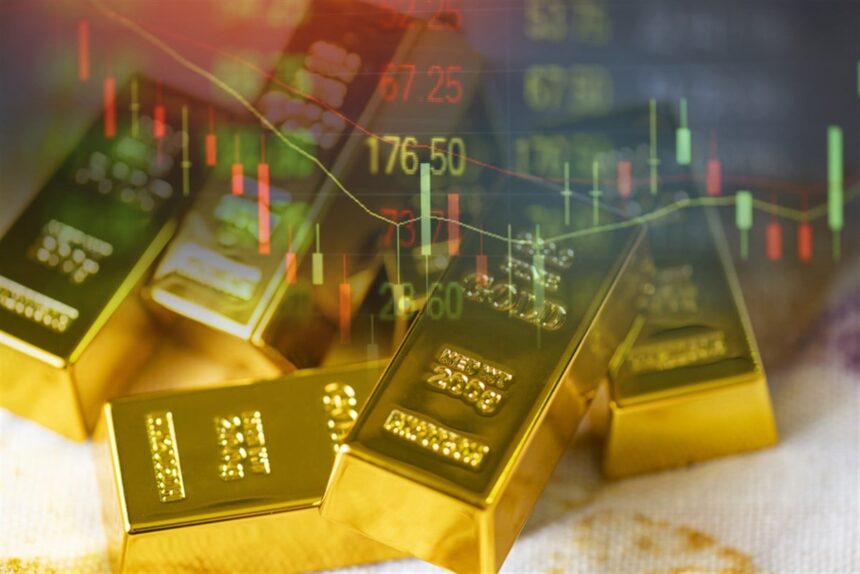In a surprising turn of events, the UAE has overtaken the UK to become the world’s second-largest hub for gold trading. Last year, the nation surpassed $129 billion in transactions, marking a significant milestone in the global commodities landscape. This achievement is not a fluke but a result of decades of strategic investments and planning.
Dubai, a city synonymous with luxury, now sits at the center of global gold flows. However, this prominent position wasn’t achieved overnight. Several key factors, such as infrastructure, policies, and timing, played a pivotal role in the UAE’s rise. Historically, cities like Beirut and Kuwait dominated the region’s gold trade. However, Dubai gradually began investing in its transport and trade infrastructure, which set the stage for its dominance in the sector.
Investment in Infrastructure Sets the Stage
During the 1970s and 1980s, Dubai was not yet a major player in gold trading. Cities like Beirut and Kuwait had established themselves as regional centers for the commodity. However, by investing heavily in infrastructure, Dubai shifted the balance. The expansion of Dubai International Airport and Jebel Ali Port were crucial developments that set the foundation for the city’s growth as a gold trading hub.
Read More: Dubai 3-Day Super Sale Begins May 30 with Discounts Up to 90%
In 2002, the establishment of the Dubai Multi Commodities Centre (DMCC) marked a major turning point. The DMCC provided gold traders with a dedicated free zone to set up operations. This not only boosted the trade of gold but also allowed businesses to scale up in a supportive environment. Today, the DMCC is home to over 15,000 businesses, making it a crucial part of Dubai’s gold ecosystem.
Government Policies Drive Competitiveness
One of the UAE’s key advantages is its government’s quick response to market changes. In 2018, when VAT was introduced, many feared it would hurt the competitiveness of Dubai’s gold trade. However, the authorities swiftly introduced a VAT-free re-export model. This allowed gold brought into the UAE for re-export to avoid tax, provided it was shipped out within 180 days. Such policies have cemented Dubai’s position as a preferred destination for gold traders.
In addition to tax incentives, Dubai offers flexible customs procedures and government-backed credit facilities. These policies make it easier for traders to operate without facing the operational headaches common in other financial hubs. For gold traders, Dubai is a place where they can focus on growth and profitability rather than navigating complex regulations.
Building Trading Infrastructure and Global Connectivity
The UAE also invested in building top-tier trading platforms. The Dubai Gold and Commodities Exchange (DGCX), launched in 2005, offers futures contracts and risk-management tools, attracting institutional players. The exchange keeps Dubai in sync with other major financial centers like New York, London, and Shanghai. The DGCX provides the tools needed for both local and international players to participate in the global gold market.
The timing of the UAE’s rise in the gold trading is also noteworthy. With central banks worldwide diversifying away from the U.S. dollar and turning to gold, global demand for the precious metal has surged. The UAE’s infrastructure and policies positioned it as the ideal hub to meet this growing demand, allowing the country to capture a significant share of the market.
Strategic Trade Agreements Boost UAE’s Position
Trade deals have further boosted the UAE’s gold trade. The Comprehensive Economic Partnership Agreement (CEPA) with India, signed recently, allows for reduced tariffs on UAE-sourced gold. This agreement enables India to import up to 160 tonnes of gold from the UAE at preferential rates. As a result, Dubai is benefiting from increased demand from one of the world’s largest gold-consuming nations.
Furthermore, the rise of BRICS nations, particularly with Saudi Arabia’s recent membership, has led to new trade corridors in the gold market. These emerging routes are bypassing traditional Western centers, with Dubai quickly becoming the focal point for East-West trade. Dubai’s strategic location and robust infrastructure make it the ideal destination for these evolving trade patterns.
Also Read: Oman’s New Economic Zone: A Game-Changer for Gulf Supply Chains Amid Global Trade Shifts
Opportunities for Investors and Businesses
For UAE investors and businesses, this rise in gold trade presents numerous opportunities. Whether through direct investments, exposure to trading platforms, or even logistics and support services, many sectors stand to benefit. This growth solidifies Dubai’s role as a major player in the global commodities market.
Dubai’s success in the gold trade also signals the UAE’s growing influence in global financial markets. For a nation that has always prided itself on being a crossroads of trade, the UAE’s dominance in the gold sector is proving to be a major asset—both economically and symbolically. Gold is not just a commodity in Dubai; it has become a currency in itself, propelling the nation into a new era of economic prosperity.
Follow 10X Times for more business news.






